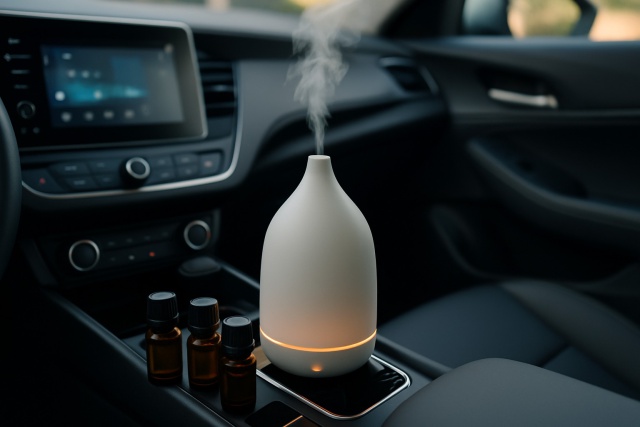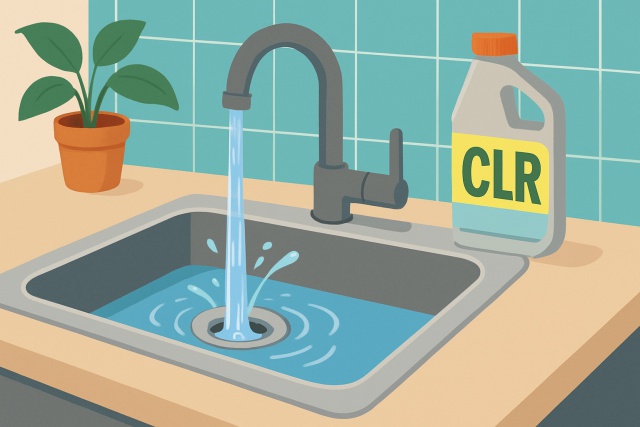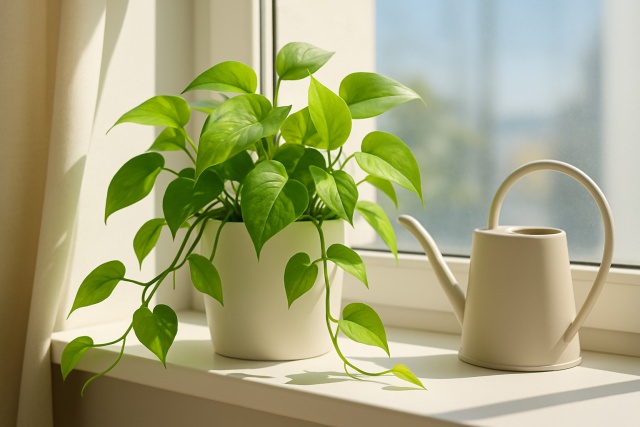Pressure vs Power Washer - Differences That Matter for Your Home
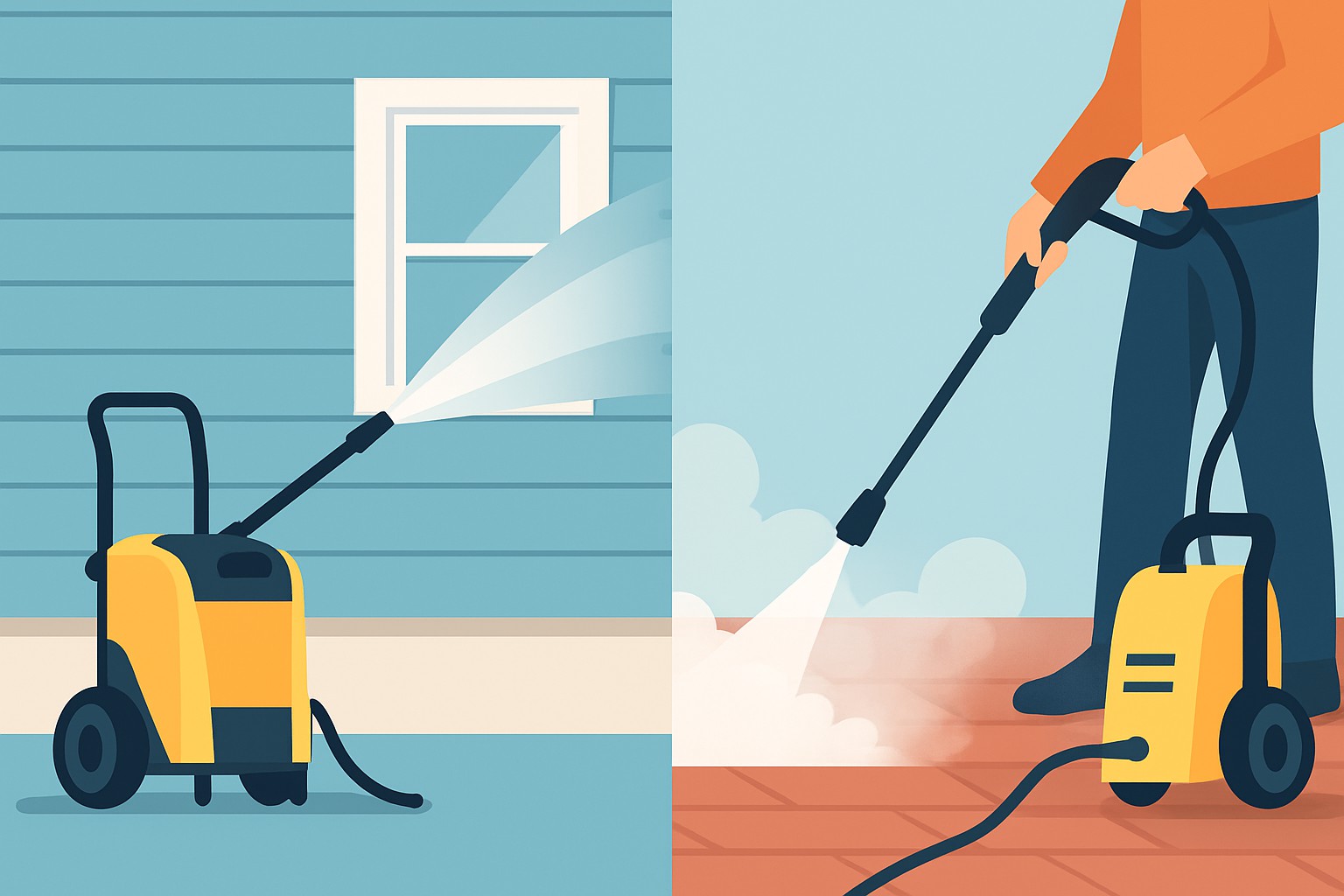
Picking between a pressure washer and a power washer can be a bit of a head-scratcher for many homeowners facing the pressure vs power washer decision. Although people tend to use these terms interchangeably, there are important differences that can seriously impact how well they do the job and what you will end up paying. These differences also affect whether they’re the right fit for your cleaning needs.
This article dives into the age-old 'pressure vs power washer' debate by breaking down each machine's technical quirks and real-world performance. It also covers ease of use and price. We’ll size up their water pressure and flow rates, heating methods and the typical tasks each one tackles like a pro.
Pressure Washers and Power Washers Explained
Pressure washers are handy cleaning tools that blast water through a special nozzle at high pressure and basically give dirt and grime the boot using cold water. Power washers, by contrast, crank things up a notch by combining high-pressure water with heat and deliver hot water or steam to tackle tougher clingier messes.
- Pressure Washers typically dish out water pressure from 1,300 to 3,000 PSI (pounds per square inch), enough to tackle most everyday grime.
- Their flow rates usually hover between 1.2 and 2.5 gallons per minute (GPM), striking a good balance without drowning the area.
- They rely on cold or slightly warm water without burner units heating things up.
- You’ll often find these handy machines powered by electric motors or gas engines, making them straightforward to move and operate.
- Power Washers crank up the pressure a notch running between 2,000 and 4,000 PSI so they mean business.
- Their flow rates climb higher too, from 2.5 to 4.0 GPM, delivering a stronger wash that gets down to the nitty-gritty.
- Thanks to an internal burner, the water heats up to between 140°F and 200°F giving you a deeper clean that cold water can’t match.
- These beasts mostly run on gas engines that power both the pump and burner. They are the go-to for tougher jobs where a little extra muscle is needed.
Pressure Washer vs Power Washer: The Lowdown on What Sets Them Apart
The main functional difference between pressure and power washers comes down to one key factor: heat. Power washers heat up the water, which usually makes them far better at slicing through stubborn grease, oil and tough grime compared to pressure washers that stick to cold water. Pressure washers do a solid job for lighter tasks like cleaning siding or vehicles. Cold water often gets the job done just fine there.
| Feature | Pressure Washer | Power Washer |
|---|---|---|
| Pressure (PSI) | Usually clocks in between 1,300 and 3,000 PSI | Typically cranks it up a notch, ranging from 2,000 to 4,000 PSI |
| Flow Rate (GPM) | Around 1.2 to 2.5 gallons per minute, perfect for lighter tasks | Generally pushes 2.5 to 4.0 gallons per minute, ready for the heavy lifting |
| Water Temperature | Uses cold or just a bit of warm water—nothing too fancy | Uses heated water, typically sizzling at 140°F to 200°F, giving grime the boot |
| Power Source | Runs on an electric motor or a gas engine, keeping things flexible | Packs a punch with a gas engine paired with a water heating burner—serious firepower |
| Typical Applications | Ideal for lighter cleaning jobs like sprucing up vehicles and decks | Built for the tough gigs: heavy-duty cleaning, grease busting, and paint stripping to boot |
| Portability | Lightweight and often electric, so it’s a breeze to move around | Usually on the heavier side, bulkier with gas power under the hood |
Comparing Performance of Cleaning Power and Efficiency
Power washers often come out on top when battling stubborn grime, thanks to the hot water doing some heavy lifting by breaking down oils and stains more thoroughly. Pressure washers pack just enough punch for everyday cleaning and are gentler on delicate surfaces, so you’re less likely to end up with any unwanted dings or scratches.
- Both types do a solid job cleaning up organic messes like leaves and mud but pressure washers are gentler on surfaces which can be a real plus.
- Power washers using heated water work wonders on stubborn grease and oil stains.
- Hot water power washers often tackle mold and mildew on exterior siding more thoroughly and leave things looking fresh and clean.
- The extra muscle from higher PSI and heat that power washers bring makes a noticeable difference for paint stripping and prepping surfaces.
User Friendliness and Upkeep Making Life a Little Easier
Pressure washers generally feel easier on the hands since they’re lighter and simpler to set up. They also tend to run quieter especially the electric ones which are a breeze in that department. Power washers, on the other hand, have bigger engines and burners. They take longer to get going and require more hands-on maintenance like burner servicing and watching fuel levels closely.
- Pressure washers usually come in lighter packages so they’re a breeze to move around and stash away when not in use.
- Power washers tend to be bulkier and heavier so you might feel the burn just lugging them around.
- Electric pressure washers often run quietly enough to avoid waking the neighbors unlike their louder gas-powered cousins.
- Thanks to their simpler design, pressure washers typically play nice with a wider variety of attachments giving you some handy flexibility.
- Pressure washers generally demand less babysitting while power washers call for more frequent TLC to keep that burner and fuel system happy.
Comparing Prices and Snagging the Best Value for Your Buck
Pressure washers usually come with a friendlier price tag upfront and tend to be easier on the wallet over time, especially electric ones since they skip fuel and special maintenance hassle. Power washers on the flip side often ask for more cash at purchase and during operation. They really shine when it comes to tough cleaning jobs where heat and pressure can save you a lot of elbow grease and time.
| Model Tier | Pressure Washer Price Range | Power Washer Price Range | Included Features | Warranty |
|---|---|---|---|---|
| Entry-Level | $100 - $250 | $400 - $600 | Comes with a basic nozzle set and a lightweight design that is easy on your arms | 1 year |
| Mid-Range | $300 - $600 | $700 - $1,200 | Includes several nozzles and detergent tanks, perfect for most household jobs | 2 years |
| Professional-Grade | $700 - $1,200 | $1,300 - $3,000 | Features a heated water system and is built tough for industrial use, so it can take a serious beating | 3 to 5 years |
Important Safety Considerations
Alright, before diving in headfirst, let’s take a moment to cover some of the really important safety considerations. It’s the kind of stuff you don’t want to overlook—trust me, a little caution goes a long way. So, buckle up and let’s make sure we keep things as safe as houses before you get started.
Pressure and power washers are not toys—they pack quite a punch, and their high-pressure water jets can easily cause injuries or leave surfaces worse for wear if you are not careful. Power washers take things up a notch since they crank out hot water and rely on fuel combustion, which adds its own set of hazards.
- High-pressure streams aren’t to be taken lightly—they can easily cause skin cuts or eye injuries if you’re not paying attention.
- Power washers can deliver scalding hot water that’s capable of burning you and require serious care when managing fuel.
- Electrical hazards occur when electric pressure washers are used carelessly around water so don’t let your guard down.
- It’s smart to suit up with protective gear like goggles, gloves and sturdy footwear every time you’re handling washers—trust me it makes all the difference.
Energy Efficiency and Its Real-World Environmental Impact
Electric pressure washers usually take the cake for being more energy-efficient and way quieter and they don’t spew out any emissions right at the source. On the flip side gas-powered washers tend to guzzle more fuel and crank out noise and exhaust like there’s no tomorrow. Both types do a great job at cranking up the water pressure but power washers often end up using more energy because they heat the water. This can throw a bit of a wrench in their overall sustainability.
Picking the Perfect Washer for Your Home Tailored to Your Unique Needs
Choosing the right washer really boils down to what you need to tackle and how much dough you are willing to spend. It also depends on how often you’ll actually be putting it to work. Pressure washers usually hit the sweet spot for homeowners who want something affordable and simple enough to handle those day-to-day cleaning chores without too much fuss.
- Light gardening area cleaning like patios and outdoor furniture usually does best with electric pressure washers—they deliver a gentle yet effective rinse without turning your cushions into a soggy mess.
- Heavy-duty driveway scrubbing often calls for heftier power washers to wrestle away stubborn oil stains and deeply embedded grime that won’t quit.
- Frequent vehicle washing benefits from pressure washers that get the job done thoroughly while being kind enough not to mess with your paint or trim because nobody wants a sparkling car with unintended scratches.
- Seasonal deep cleaning of siding and decks almost always calls for power washers that knock out mold, mildew, and stubborn stains that seem to set up camp for the long haul.
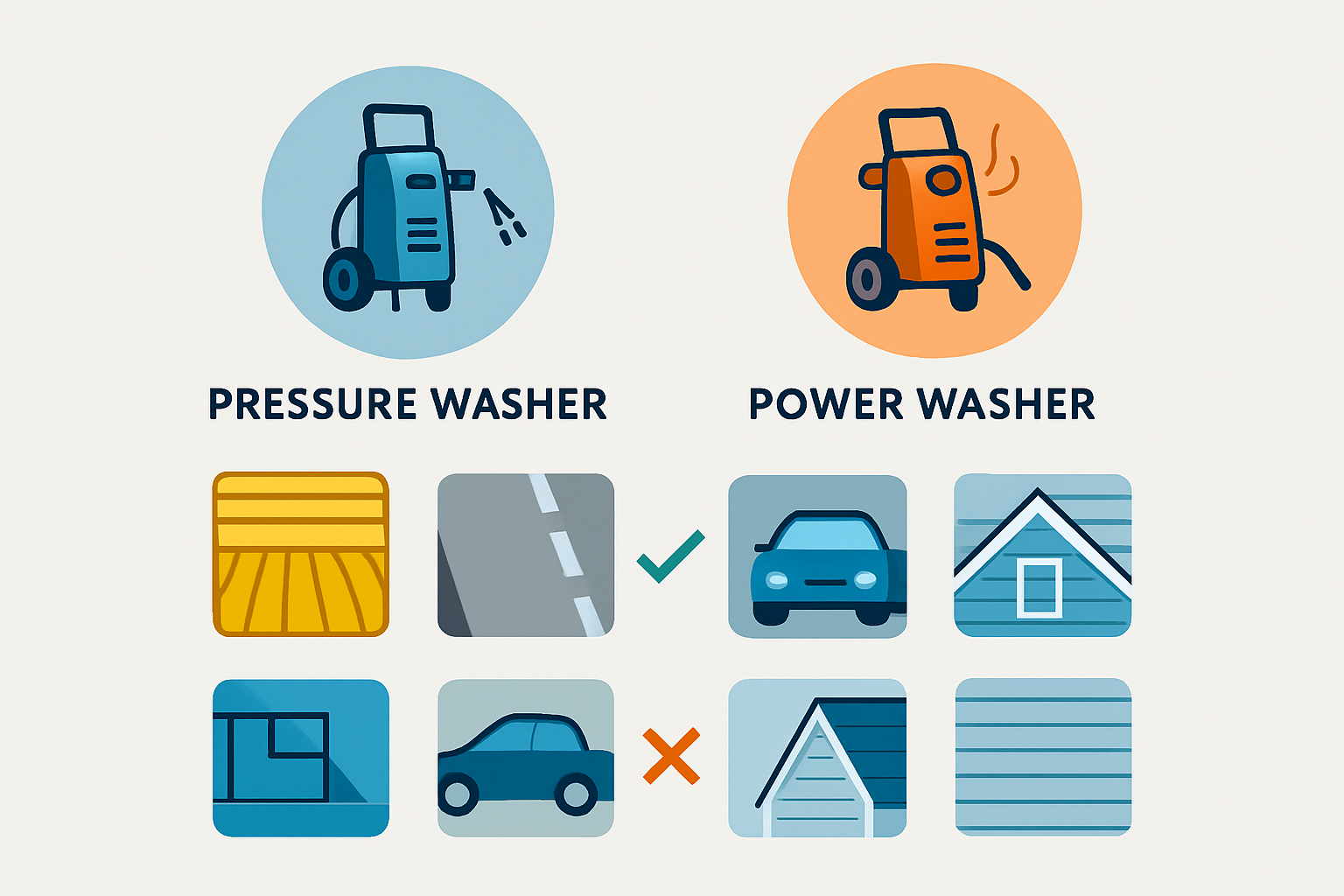
Visual infographic summarizing which washer excels for each home cleaning scenario
Final Thoughts on Pressure Washers and Power Washers
Well, there you have it—pressure washers and power washers both have their moments to shine. When it comes down to it, understanding the little quirks and strengths of each can save you from a world of frustration (and maybe a messy garage floor). Whether you’re tackling stubborn dirt or just giving your deck some much-needed TLC, picking the right tool is half the battle. So go ahead, roll up your sleeves, and make that grime regret ever showing up. After all, a clean space is a happy space, wouldn’t you agree?
When considering a pressure vs power washer, pressure washers are wallet-friendly and straightforward to handle. They do a solid job for typical day-to-day home cleaning chores. Power washers, on the other hand, bring serious muscle with stronger cleaning power and heat but tend to come with a heftier price tag and more hands-on maintenance.


